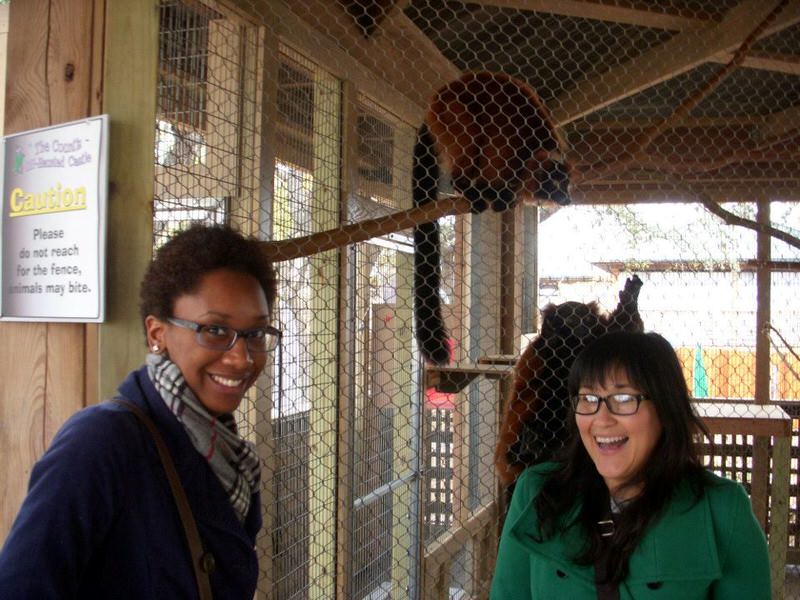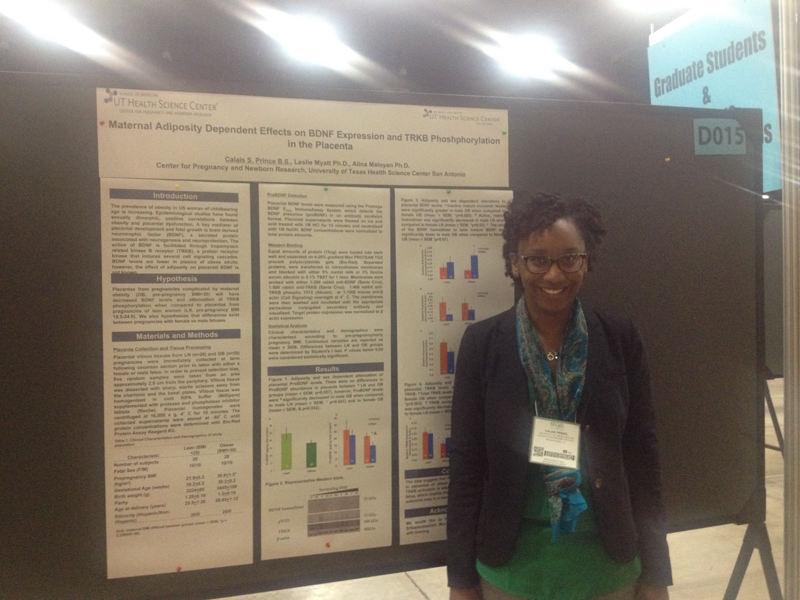Calais Prince Follows Her Passion as a Researcher

With an undergraduate degree in animal science from Purdue University, Calais Prince had planned to go to veterinary school. However, after working on research projects her senior year, she recognized that her passions had changed.
“I realized that I was passionate about research,” Prince said.
Prince explained that she was offered admission to several different graduate programs, but decided to attend The University of Texas Health Science Center at San Antonio.
“What brought me to The University of Texas Health Science Center at San Antonio was the number of options available to me as a student and to potential to collaborate with exceptional researchers,” Prince said. “I was also interested in experiencing a different cultural environment, which I knew I would find by living in San Antonio.”
As part of the Genetics, Genomics & Development track of the Integrated Multidisciplinary Graduate Program (now called Integrated Biomedical Sciences Program), Prince is able to reach out to faculty and students outside of her area of research.
“Collaboration provides an opportunity to think differently,” Prince explained. “It is easy to get trapped into thinking about your project in a certain way. Once you engage with experts outside of your field, it can breathe life into your work.”
With over 300 days of sunshine in San Antonio and as the 7th largest city, Prince feels right at home.
“I wanted to be in a major city and I knew that I would want to enjoy myself outside of the lab,” Prince said. “I also wanted to be in a place that has sunshine in December.”

Prince enjoys going to the San Antonio Museum of Art, the Witte Museum, and film festivals such as the San Antonio Film Festival, 48 Hour Film Project, and the Hill Country Film Festival.
Prince also explained that she really connects to the Graduate School of Biomedical Sciences “Teaching the Art of Science” motto.
“My background is different from many of my colleagues. While in undergrad, I pursued my interests in dance, music, photography, and religious studies. I’ve learned that the ability to be flexible allows you to think outside of the box,” Prince said. “It’s hard to do that if you don’t have experiences outside of your field.”

Prince is currently working in Dr. Leslie Myatt’s lab where they are studying the effect of pre/early pregnancy obesity on placental function.
“The prevalence of obesity in women of childbearing age is increasing in our country. I’ve learned that obesity during early pregnancy can adversely affect placental function and potentially impact the physical and mental well-being of the offspring.”
In the future, Prince would like to have her own lab.
“We have a responsibility as scientists to increase diversity in STEM fields. Growing up in Chicago, no one talked about pursuing a career in research,” Prince said. “It’s important for students to know at an early age that research is a rewarding and challenging possibility. It’s also important for women of color to know that they can do great things in STEM fields.”
Also be sure to read, Calais’s new article on Diversity in STEM: What is it and why is it important?
 This article was written by Charlotte Anthony, marketing specialist at the Graduate School of Biomedical Sciences at UT Health San Antonio. This article is part of the “Meet The Researcher” series which showcases researchers at the Graduate School of Biomedical Sciences at University of Texas Health Science Center San Antonio.
This article was written by Charlotte Anthony, marketing specialist at the Graduate School of Biomedical Sciences at UT Health San Antonio. This article is part of the “Meet The Researcher” series which showcases researchers at the Graduate School of Biomedical Sciences at University of Texas Health Science Center San Antonio.
